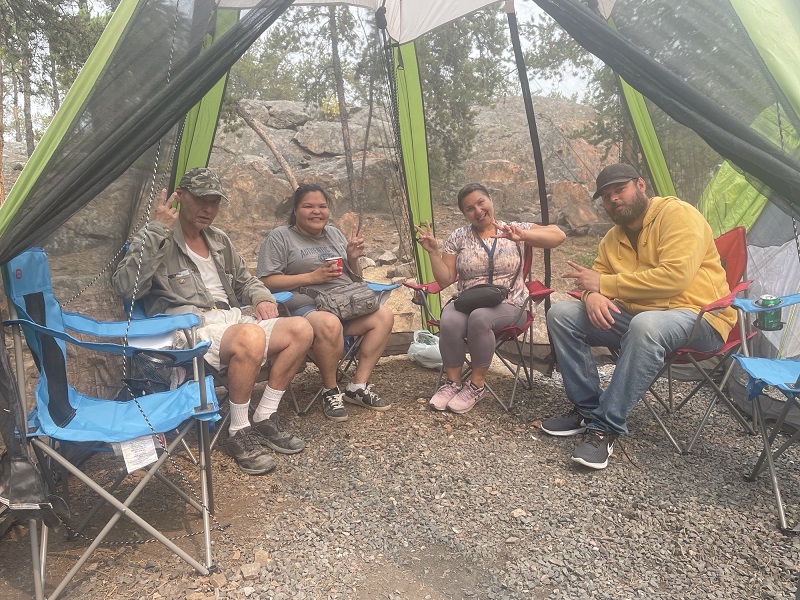Salvation Army Provides Essential Mental Health Support in Yellowknife

For Yellowknife residents who struggle with their mental health, The Salvation Army is one of the few places they can come to for affordable support. Their mental health program aims to improve the quality of life for clients with mental health diagnoses.
“We do as much as we can to stabilize their life and to add recreation into their lives because social isolation tends to be an issue for somebody with a mental health diagnosis,” says Kanishka Kawatra, supervisor of the mental health program. “We try our best to make their lives as normal as possible.”
The program is divided into two parts. The first part is Group Support Living, designed for clients with severe mental health diagnoses who are unable to live independently. Clients in this group reside in private units and receive support from Salvation Army staff regarding medication management, assistance with doctor’s appointments, and participation in social and recreational activities.
“We do as much as we can to stabilize their life.”
The second part of the program serves clients who can live independently in the community, offering similar support while allowing them to remain in their own homes. Salvation Army staff will visit to administer medication, accompany them to the doctor when needed, and encourage them to partake in fun activities.
“The caseworkers will pick clients up, they will take them to doctor’s appointments or if they feel like going for a coffee, we will do that. Then there are different kinds of get-togethers and social events that we plan. We’ll have movie nights, and we recently hosted a Christmas party. Now we are scheduling all the winter activities for Yellowknife, such as dog sledding, and ice fishing,” Kanishka adds.
One great benefit of The Salvation Army’s mental health support program is its affordability. The group program has a fee for the unit, which is lower than average rent, and often covered by income support for people who need it. The individual program is free.
Kanishka recalls one client who made significant progress after enrolling in the program.
“We try our best to make their lives as normal as possible.”
Max (not his real name) was struggling with severe mental health symptoms. This prevented him from living a regular life and he was on the verge of eviction. After he got connected with The Salvation Army’s mental health program, everything began to change.
“We stabilized him on the medication, and then we connected him to different support psychiatrists and mental health nurses. He felt that he was heard. One after the other, the symptoms started to subside,” Kanishka shares.
Additionally, the Army helped him get his apartment back. Max’s mental health is now stabilized.
Bell Let’s Talk Day serves as an important reminder that we all should care for our mental health and not be afraid to seek support if needed. For many people across Canada, The Salvation Army is often the first point of contact for someone experiencing poor mental health.
By Juan Romero



